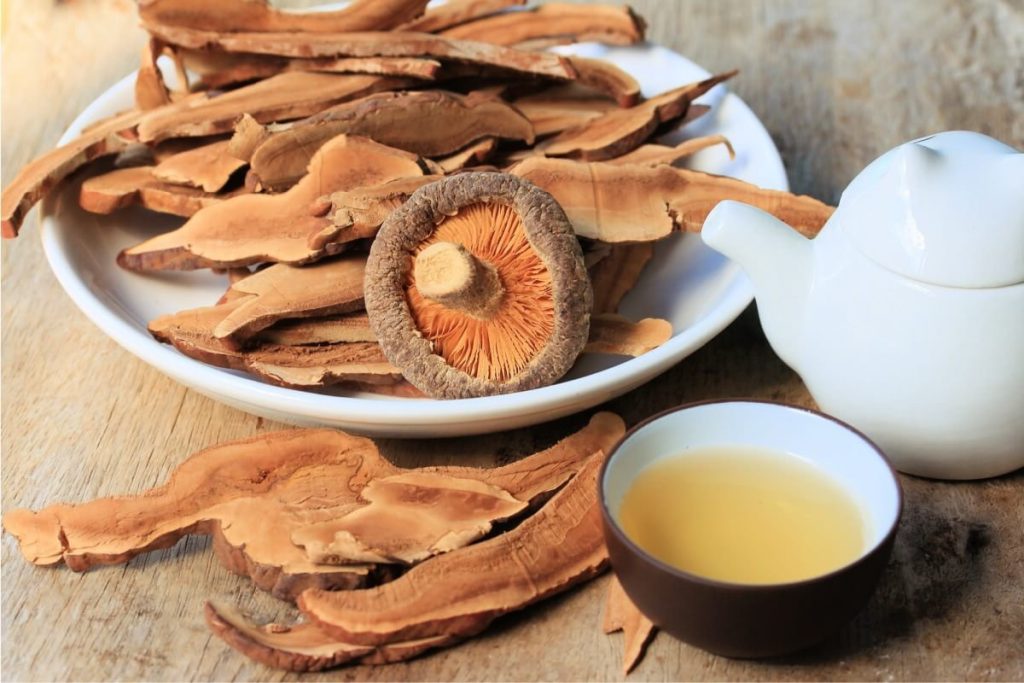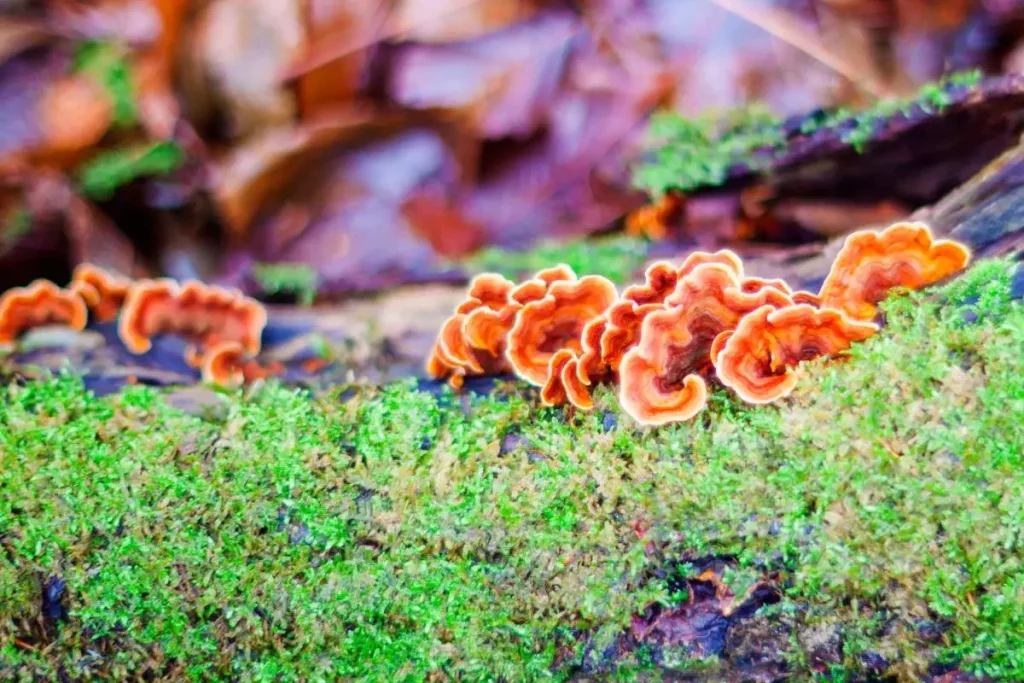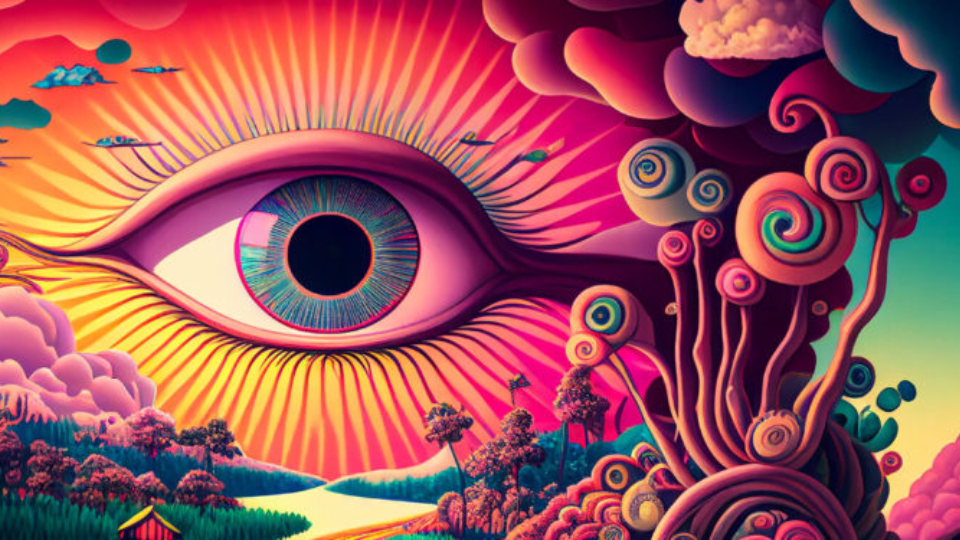Reishi Mushroom Psychedelic Effects on the Brain
Unlike certain mushrooms renowned for their psychedelic properties, reishi mushrooms do not cause hallucinations or alter one’s mental state. However, they are believed to offer various positive effects on the body. For instance, they may contribute to lowering cholesterol and triglyceride levels, preventing platelet clumping, and potentially assisting in the treatment of depression.
In this article, we will explore the latest research findings on reishi mushrooms and their potential impact on your body and mind.
In this article:
Is Reishi Mushroom Psychedelic?
Reishi mushrooms, distinct from psilocybin mushrooms, do not trigger psychedelic effects like LSD, mescaline, or psilocybin. They provide a meditative-like sensation, often referred to as the “mushrooms of immortality” in traditional Chinese medicine. Rather than acting as conventional psychedelics, Reishi facilitates connections with a deeper, mythic state of being.
Instead, you can experience the therapeutic benefits of Reishi Mushrooms by consuming them at the right time, such as in the morning. This practice delivers both biomolecular and clinical advantages that actively enhance productivity by improving the brain’s information-processing capabilities throughout the day.
What does Reishi Mushroom Do for the Brain?
- Enhances cognitive function and memory.
- Reduces oxidative stress and inflammation in the brain.
- Promotes neuroprotection and neuronal regeneration.
- Boosts focus, concentration, and mental clarity.
- Supports a balanced mood and emotional well-being.
- Enhances sleep quality, which is essential for brain health.
- Supports the production and release of important neurotransmitters.
- Helps to reduce symptoms of anxiety and stress.
- Supports the brain’s natural detoxification processes.
It is important to consult with a healthcare professional before starting any new supplement regimen, including Reishi mushroom, to ensure it is appropriate for your specific health needs.
Does Reishi Mushroom Get You High?

Research has shown that Reishi mushroom does not induce a feeling of being high. Instead, it is classified as an adaptogen known for its various health benefits. Firstly, Reishi functions as an adaptogenic substance, supporting the body’s defense against stress and disease. It has been scientifically proven to have anti-cancer effects and boosts the immune system.
Studies have shown that the molecular functions of Reishi mushrooms can suppress the expression of breast cancers in human and mouse experiments. Additionally, Reishi contains substances that enhance T cells and natural killer cells, bolstering the immune system.
Do Reishi Mushrooms Contain Psilocybin?
As mentioned above, reishi mushrooms do not contain psilocybin. Reishi mushrooms, belonging to the genus Ganoderma, are not known for their psilocybin content. As a result, reishi mushrooms should not be considered a source of psychedelic compounds.
However, they do contain various other bioactive compounds that have beneficial effects on the immune system and possess anti-inflammatory properties. While reishi mushroom supplements may not induce a feeling of being high, they have the potential to promote longevity and overall health.
What is Reishi Mushroom?

Reishi or Lingzhi, is a fascinating species of fungus deeply intertwined with the traditions of traditional Chinese medicine. These mushrooms have an illustrious history and are celebrated for their distinct appearance, reminiscent of woody, reddish-brown shelves. And they can be found flourishing on decaying trees across different regions worldwide.
They have captivated the interest of researchers and health enthusiasts due to their potential health benefits[1]. They have been traditionally used to promote overall well-being, enhance the immune system, and combat inflammation. Today, they are consumed in various forms, such as extract powder, teas, and coffees, as natural remedies and dietary supplements.
Medical Properties of Reishi Mushroom
Let’s examine a table that outlines the medical properties of Reishi Mushroom:
| Medical Property | Description |
|---|---|
| Immune-Boosting | Enhances the immune system, promoting overall health and resistance to infections. |
| Anti-Inflammatory | The active compounds in this Mushroom possess anti-inflammatory properties, reducing inflammation in the body. |
| Antioxidant | It is rich in antioxidants, which help protect cells from damage caused by free radicals and oxidative stress[2]. |
| Anti-Cancer | Studies suggest that Reishi Mushroom may have anti-cancer effects, inhibiting the growth and spread of cancer cells[3]. |
| Cardiovascular Support | It promotes heart health by lowering blood pressure, reducing cholesterol levels, and improving circulation. |
| Liver Protection | It supports liver function and protects against liver damage, potentially aiding in detoxification processes. |
| Adaptogenic | It acts as an adaptogen, helping the body cope with stress and promoting overall balance and well-being. |
| Anti-Anxiety | May have calming effects on the nervous system, reducing anxiety and promoting relaxation[4]. |
| Anti-Aging | The antioxidant and anti-inflammatory properties of Reishi Mushroom contribute to its potential anti-aging effects[5]. |
| Neuroprotective | May help protect the brain and nervous system, potentially reducing the risk of neurodegenerative diseases. |
FAQs
Is Reishi Similar to Xanax?
No, Reishi is not similar to Xanax. Reishi is a type of mushroom used in traditional medicine, while Xanax is a prescription medication for anxiety and panic disorders. Reishi is natural and promotes overall health, while Xanax is a pharmaceutical drug that specifically targets anxiety symptoms. They have different uses and effects.
How Does Reishi Mushroom Make You Feel?
Reishi can make you feel calm and relaxed. They have a soothing effect on the body and mind. Some people describe a sense of tranquility and improved well-being when taking Reishi. It is important to note that individual experiences may vary, and it is always best to consult with a healthcare professional for personalized advice.
Is Reishi Mushroom Good for Mental Health?
Yes, Reishi may have positive effects on mental health. It contains compounds that can help reduce stress and anxiety, promoting relaxation. However, it’s not a substitute for professional mental health treatment. If you have mental health concerns, consult a healthcare provider for proper guidance and treatment options.
Is Reishi Psychoactive?
No, Reishi mushrooms are not psychoactive. They do not contain compounds known to induce hallucinations or mind-altering effects. While Reishi mushrooms possess certain psychoactive properties, they only elicit mild effects and should not be classified as psychoactive.
Conclusion – Is Reishi Mushroom Psychedelic
In conclusion, Reishi mushroom is not psychedelic, but rather an adaptogenic powerhouse with numerous health benefits. Through extensive scientific research, it has been established that Reishi does not induce hallucinatory experiences. Its immune-boosting, anti-inflammatory, and potential anti-cancer properties make it a subject of great interest. So while it may not provide psychedelic effects, Reishi offers a wealth of therapeutic potential for those seeking natural remedies.
References
1. A brief overview of the potential health benefits of Ganoderma lucidum. Retrieved from https://www.researchgate.net/publication/348135206_A_brief_overview_of_the_potential_health_benefits_of_Ganoderma_lucidum
2. Antitumour, Antimicrobial, Antioxidant and Antiacetylcholinesterase Effect of Ganoderma Lucidum Terpenoids and Polysaccharides: A Review. Retrieved from https://pubmed.ncbi.nlm.nih.gov/29534044/
3. Antitumor Effects of Polysaccharides of Ganoderma lucidum (Curt.:Fr.) P. Karst. (Ling Zhi, Reishi Mushroom) (Aphyllophoromycetideae) Retrieved from https://www.dl.begellhouse.com/journals/708ae68d64b17c52,58cadf0c6c913237,1af485045b17e424.html
4. Rising sea levels will reduce extreme temperature variations in tide-dominated reef habitats. Retrieved from https://www.ncbi.nlm.nih.gov/pmc/articles/PMC4988773/
5. Emerging Roles of Ganoderma Lucidum in Anti-Aging. Retrieved from https://www.ncbi.nlm.nih.gov/pmc/articles/PMC5758346/
6. Studies on Ganoderma lucidum. I. Efficacy against Hypertension and Side Effects. Retrieved from https://www.researchgate.net/publication/19068043_Studies_on_Ganoderma_lucidum_I_Efficacy_against_Hypertension_and_Side_Effects
7. Polysaccharide from Ganoderma lucidum ameliorates cognitive impairment by regulating inflammation of the brain-liver axis in rats. Retrieved from https://www.researchgate.net/publication/351665407_Polysaccharide_from_Ganoderma_lucidum_ameliorates_cognitive_impairment_by_regulating_inflammation_of_the_brain-liver_axis_in_rats
8. Anticancer and Anti-Inflammatory Properties of Ganoderma lucidum Extract Effects on Melanoma and Triple-Negative Breast Cancer Treatment. Retrieved from https://www.ncbi.nlm.nih.gov/pmc/articles/PMC5372873/
9. Antioxidant, antibacterial, antitumor, antifungal, antiviral, anti-inflammatory, and nevro-protective activity of Ganoderma lucidum: An overview. Retrieved from https://www.researchgate.net/publication/348135206_A_brief_overview_of_the_potential_health_benefits_of_Ganoderma_lucidum

